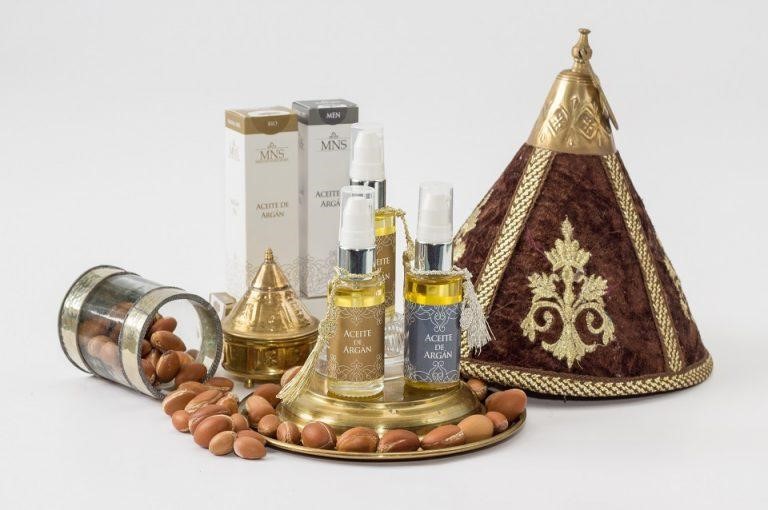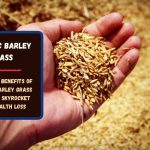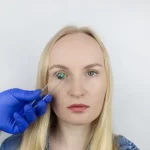Love Your Body and Go Organic
If you are someone who puts makeup on every day, you may have wondered about organic cosmetics. Are they safer? Do they work as well? Should you use them?
The answer to those questions, especially the last one, aren’t straight yes or no. In reality, it is all about what works best for you and is the best for you. Some people have a really hard time giving up their nonorganic makeup and that’s okay. You like what you like. However, there are some reasons you absolutely should make the switch. And if you are thinking about it, you probably have some questions. Luckily for you, we have those answers for you.
What Are Organic Cosmetics and Why Are They Good for You?
Unlike conventional beauty products, organic cosmetics use ingredients that are completely natural, not man-made. And really, there are a ton of reasons why you should consider using them, but the two biggest reasons are that they are better for your health and better for the environment.
Many conventional cosmetics contain ingredients that may be linked to cancer, and some have been linked to Alzheimer’s disease, The Global Healing Center notes. And because many of these contain petroleum, they are really tough on the environment because of the mining processes used to obtain them. That’s especially true for the Amazon rainforest, where people have killed miles of land and beautiful wildlife. As if that weren’t enough, many of the chemicals in non-organic cosmetics are harsh and can cause irritation or allergic reactions, especially if your skin is particularly sensitive.
In the video below, Sazan Hendrix uses a few of the organic ingredients to be discussed below:
What to Look for in Organic Cosmetics
Along with not using harsh chemicals and being ecologically sound, organic cosmetics should use natural fragrances and be chock full of nutrients. Essential oils make excellent perfumes, but if you use them, remember that using a little goes a long way.
The following are some examples of what your organic makeup products should contain. The best thing to do is find a product that has a mixture of these ingredients.
#1. Aloe vera leaf extract
Many people know that Aloe vera is excellent for healing burns, but did you know it also has bacteria-fighting ingredients that can fight inflammation, redness, and itching, according to Dr. Axe? If you’re looking for a good foundation that can help you fight bacteria, Alima Pure makes a foundation containing this powerful organic. The foundation comes in a variety of shades, so you should be able to find a match for your skin tone.
#2. Argan oil

Image CC0, by pacodocus, via Pixabay
Native to Morocco, where it’s been grown for generations, Argan oil is made by a nut from the Argan tree. The nut is processed by local Berber women who work in fair-trade cooperatives, MindBodyGreen reports. The women crack the nuts by hand between two stones to extract the kernels, instead of running it through a machine. Then the nuts are ground by stone, kneaded by hand for several hours and cold-pressed into the oil. It can take one woman as long as three days to make one liter of oil.
The really cool thing about Argan oil is that the forest where the trees grow has been declared a UNESCO protected biosphere — meaning that the nuts are grown sustainably.
This organic oil is full of antioxidants, essential fatty acids, and vitamins (especially A and E). After washing your face at night or in the morning, it makes a wonderful moisturizer. You can also add it to your own facial toner. Or you can make your own by adding a few drops of Argan oil to rose or orange blossom water. Further, if you have curly hair, argan oil is great for taming your hair.
#3. Elderberry extract

Image CC0, by TBIT, via Pixabay
Elderberries are the leafy fruit of a small shrub, and many companies that produce organic cosmetics (like Axiology, for instance) use elderberry extract as a natural preservative in lipsticks. Elderberry extract is naturally resistant to microbial growth and contamination, and it’s a valuable antioxidant for your lips.
#4. Organic avocado oil and avocado butter
Avocados are full of vitamins, and as noted by Refinery 29, deeply moisturizing for your lips. Especially if used in lipstick. This is terrific because none of us want dry lips. Unfortunately, as you know, a lot of non-organic products do exactly that. So, we recommend you definitely look for lipstick or gloss with avocado in it.
Another plus? If used in organic lipstick, avocado oil protects against the harmful effects of pollution and smog.
#5. Castor seed oil
Castor oil, which is made from these attractive little seeds, is a natural emollient that inhibits the growth of molds, viruses, and bacteria. Makeup manufacturers also use it in different organic lipsticks. And if you have dry skin, you can mix a tiny amount for an all natural skin cleanser that cleans away impurities. Just massage the mixture into your face, then wash with warm water.
#6. Arrowroot powder

Image CC by 4.0 International, by Vijayanrajapuram, via Wikimedia Commons
Arrowroot powder is a starch made from West Indian arrowroot, mainly from the plant’s rootstock. It’s often used as a sauce or soup thickener and is used as a replacement for gluten in baking, The Green Parent reports. It’s also a wonderful ingredient for organic cosmetics.
You can add arrowroot to loose face powder to make it lighter. This is great if you happen to have a tan that’s fading. Because it’s lightweight, it blends easily into the face powder and leaves your skin feeling soft and silky. And if you’re in the mood, you can even make your own organic eyeshadow with arrowroot powder just by following the steps mentioned here.
#7. Shea butter
Shea butter is made from the nuts of the African Karite tree and has a creamy texture with a golden color. Yes, it seems like everything that’s good for you comes from Africa, doesn’t it? This tree of much beneficence ranges from Guinea and Senegal to Uganda and South Sudan.
But did you know shea butter is also rich in vitamins A and E? Loaded with fatty acids and plant sterols shea butter helps your skin heal. Companies like Alimapure actually sell it as part of a preparation to help your eyeshadow stay put.
So Why Use Organic Cosmetics?

Image CC0, by skeeze, via Pixabay
As mentioned earlier, many conventional cosmetics contain materials such as aluminum, which has been linked to Alzheimer’s disease and cancer. This is really frightening, especially if you wear makeup every single day like me. The last thing we want to hear is that something we love is going to harm us. However, organic products are the safe alternative.
Also unlike organic cosmetics which use natural fragrances, conventional cosmetics are chock full of man-made fragrances that have been linked to cancer, nervous system disorders, allergies, and birth defects.
What To Consider If You Make the Leap to Organic Cosmetics
Make sure a company you’re thinking of really does offer “natural” ingredients. Some companies, especially large manufacturers of cosmetics just add a couple of natural ingredients in with a bunch of toxic substances — then slap the word “natural” on the label, SimpleLuxeLiving reports. In general, lots of these huge companies also engage in large and unsustainable farming and mining practices. So you’ll have to do your detective work here.
Many smaller companies offer products that are 100 percent natural. That means the ingredients pose no harm to the environment.
But here’s something else to consider: The chemicals found in many conventional cosmetics don’t break down. Instead, they wind up in ecosystems where they do the worst damage. These chemicals wind up in our oceans, lakes, river systems, and even in our public drinking water.
These chemicals include P-phenylenediamine, a coal-tar derivative found in hair dyes and lipsticks. It’s very toxic in aquatic environments, killing plankton that many creatures depend on for food, and altering fish behavior.
BHA and BHT, two chemicals frequently used as preservatives in cosmetics also cause behavioral changes. They are ultimately lethal to fish and shellfish. These two synthetic antioxidants, found in lipsticks and moisturizers also cause genetic mutations in amphibians.
Really, if these chemicals cause this much damage, why would you want to put them on your face?
Featured image: CC0, by oliana_gruzdeva via




